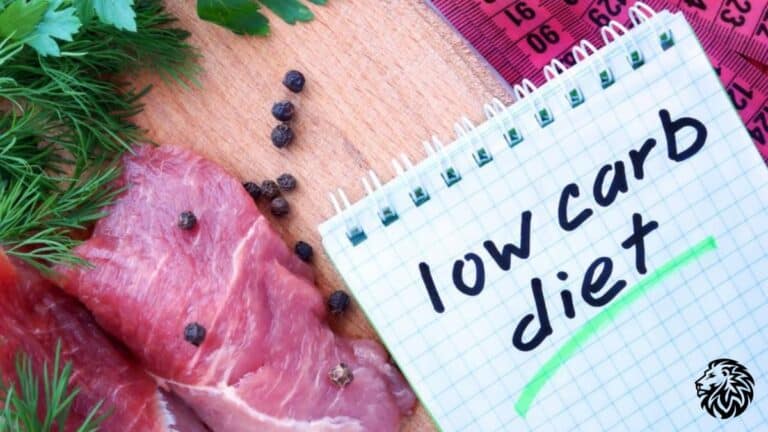How can a Low-Carb Diet Help with IBS?
A low-carb diet can help manage Irritable Bowel Syndrome (IBS) for some individuals by reducing the intake of fermentable carbohydrates, which are often triggers for IBS symptoms. Here’s a closer look at how a low-carb approach can alleviate symptoms:
1. Reduction of FODMAPs
Low-carb diets often involve limiting foods high in FODMAPs (fermentable oligosaccharides, disaccharides, monosaccharides, and polyols). These short-chain carbohydrates are poorly absorbed in the gut and can lead to gas, bloating, and diarrhea. By cutting down on these fermentable carbs, a low-carb diet may ease digestive discomfort.
2. Lower Sugar Intake
High-sugar foods can exacerbate IBS symptoms by contributing to bacterial overgrowth in the gut and increasing fermentation. Low-carb diets typically reduce sugar consumption, which can lessen bloating and cramping.
3. Reduced Inflammation
Some studies suggest that certain carbohydrates can trigger inflammation in sensitive individuals. A low-carb diet, particularly one that prioritizes anti-inflammatory foods like non-starchy vegetables, lean proteins, and healthy fats, may reduce inflammation in the digestive tract, potentially improving IBS symptoms.
4. Stable Blood Sugar Levels
Carbohydrates with a high glycemic index can cause spikes and crashes in blood sugar, which may affect gut motility and exacerbate symptoms of IBS. A low-carb diet helps maintain stable blood sugar levels, supporting better digestion.
5. Improved Gut Microbiota
Excess carbohydrates can feed harmful bacteria in the gut, disrupting the balance of gut microbiota. A low-carb diet may help restore balance by limiting the fuel for these bacteria, potentially reducing symptoms like gas and diarrhea.
Practical Tips for IBS Management on a Low-Carb Diet
- Focus on Low-FODMAP Foods: Include low-carb vegetables (e.g., zucchini, spinach), proteins (e.g., chicken, fish), and healthy fats (e.g., avocado, olive oil).
- Monitor Fiber Intake: Ensure you get enough soluble fiber, as insoluble fiber can sometimes aggravate IBS symptoms.
- Avoid Common Triggers: Steer clear of foods known to trigger IBS, such as dairy (if lactose-intolerant), certain artificial sweeteners, and high-fat processed foods.
- Hydrate Adequately: Drink plenty of water to prevent constipation, a common issue when transitioning to a low-carb diet.
Limitations and Considerations
- A low-carb diet may not work for everyone with IBS, as triggers can vary widely between individuals.
- It’s essential to consult a healthcare provider or dietitian before starting any restrictive diet, especially if you have other medical conditions or dietary needs.
- A low-carb approach should be balanced and not overly restrictive to ensure sufficient nutrient intake.
By tailoring a low-carb diet to individual needs and focusing on IBS-friendly foods, many people find relief from their symptoms while improving overall gut health.
Exploring Low-Carb Diets
What is a Low-Carb Diet?
A low-carb diet strips back on carbs, putting the spotlight on foods richer in protein and fats. You’ll find carbohydrates lurking in grains, starchy veggies, and fruits, so a low-carb diet usually sends those on vacation while giving protein and fats a starring role. Whether you’re diving into a low carb diet for IBS or just aiming to trim a few pounds, getting the basics down is key.
Benefits of Low-Carb Diets
Jumping aboard the low-carb train comes with a bunch of perks, especially when it comes to weight loss and feeling healthier overall.
- Weight Loss: Low-carb diets might have the edge for short-term weight loss compared to chomping down fats (Mayo Clinic). Kicking sugars and starches to the curb often curbs hunger, leading to effortless weight shedding without fretting about calories or portion sizes.
- Feel Fuller: Protein and fat are like your eating buddies that help you feel satisfied longer, making it less likely you’ll snack binge later.
- Help with Type 2 Diabetes: Low-carb diets that prioritize healthy carb, fat, and protein sources can lower type 2 diabetes risk. Cutting down on carbs helps keep your blood sugar steady, a big plus for diabetes management.
- Heart Health: Any plan that whittles down weight may also improve cholesterol and trim heart disease risks in the short haul.
- Calming IBS Symptoms: If IBS is bugging you, a low-carb diet could be your friend in reducing symptoms like bloating and bellyaches.
To build a better understanding, check out more about the low carb diet benefits and see how different components of the diet fit into your quest for balance in low-carb eating.
Don’t miss our stash of info on low carb snacks and low carb meal plan for handy tips and recipes to light up your dietary path.
Weight Loss with Low-Carb Diets
Jumping into a low-carb diet for shedding those extra pounds? You’ve landed in the right spot. Let’s break down what happens to your body both in the short and long run, and how munching on the right proteins and fats can be your weight-loss sidekick.
Short-Term vs. Long-Term Weight Loss
Low-carb diets are like the fast lane to quick weight loss. You might hop on the scale and smile a bit wider during the first few months, potentially shedding twice as much weight as with a low-fat diet. This initial drop in pounds? It’s mostly water weight flying off as your body taps into those glycogen stores (Mayo Clinic).
However, stick around for 12 to 24 months, and things tend to even out with other diet types. So, look for consistency and a game plan you can live with for the long haul, and that’s your ticket to keeping the weight off.
| Time Frame | Low-Carb Diet (lbs) | Low-Fat Diet (lbs) |
|---|---|---|
| Short-Term (3-6 months) | 8-10 | 4-6 |
| Long-Term (12-24 months) | 7-9 | 5-7 |
Table based on real-life studies and general dietary insights (Mayo Clinic)
Impact of Protein and Fat
Proteins and fats are your best pals on a low-carb diet. Why? They keep that hunger beast at bay, making you feel full longer and putting the brakes on overeating (Mayo Clinic). This can help you cut back on calories naturally while supplying a steady energy flow.
For best results, pack your meals with top-notch protein and healthy fats. Lean meats, fish, eggs, nuts, seeds, and everyone’s favorite—avocados—can make a tasty and satisfying low-carb meal. Need inspiration for your shopping list? Check out our low carb meal plan for a heap of tasty ideas.
Got IBS troubles? A low-carb diet can be your friend there, too. According to a study in The Lancet Gastroenterology and Hepatology, this diet often eases up on symptoms better than many meds, with 7 out of 10 folks feeling way better. Less tummy pain and more comfort.
Balance those proteins and fats right, and you’re not just on a path to losing weight, but also to feeling a whole lot better. Curious for more? Dive into our guide on the best low carb foods and start planning some delicious meals.
Health Benefits of Low-Carb Diets
Managing Type 2 Diabetes
Looking to keep your blood sugar levels in check? Going low-carb has its perks when managing type 2 diabetes. Cutting back on carbs helps you keep a tighter lid on those glucose levels, making life a bit smoother when dealing with diabetes. With fewer carbs to worry about, your body’s not working overtime pumping out insulin. This can help tackle that pesky insulin resistance that pops up with type 2 diabetes.
Here’s how low-carb eating stacks up:
| Metric | Standard Diet | Low-Carb Diet |
|---|---|---|
| Average Blood Sugar Levels | High | Lower |
| Insulin Sensitivity | Lower | Improved |
You can ease into a low-carb diet for type 2 diabetes by opting for lean proteins, good fats, and veggies low in carbohydrates. Make sure to chat with a healthcare pro or dietitian to pin down the right carb count that fits your treatment plan. We’ve got more on that over at low carb diet for diabetes type 2.
Prevention of Heart Disease
Nobody wants heart problems hanging over their head, right? A low-carb diet might just be your ticket to keeping heart disease at bay. Think of it like a little cholesterol fixer-upper; it lowers the bad stuff (LDL) and boosts the good stuff (HDL).
Here’s a simple snapshot of cholesterol changes:
| Cholesterol Type | Effect of Low-Carb Diet |
|---|---|
| LDL (Bad) | Decreases |
| HDL (Good) | Increases |
Beyond cholesterol, lowering your carb intake also takes a swing at those triglycerides, the little fat buddies swimming in your blood that aren’t doing any favors for your heart. Weight loss from a low-carb diet is a cherry on top, as it can help drop blood pressure and toss inflammation out the window.
By making smart picks with your carbs, fats, and proteins, you’re giving your blood sugar and heart health a real boost. Don’t miss our deeper dive on low carb diet benefits for all the juicy details.
For those just starting out, hop on over to low carb diet for beginners for a friendly guide to get you rolling.
Risks of Low-Carb Diets
So, you’re thinking about jumping on the low-carb bandwagon, huh? I get it—cutting back on carbs can sound pretty tempting with all those success stories floating around. But hold your horses, my friend, it’s wise to know the possible bumps in the road, especially if you’re considering a low carb diet for IBS.
Side Effects of Ketosis
One of the not-so-fun parts of low-carb living is ketosis. What’s that, you ask? It’s when your body decides to use fat as fuel instead of carbs, leading to some pesky symptoms known as the “keto flu.” You might notice your breath starts to smell like overripe fruit, headaches become your unwelcome friends, and fatigue tags along too. And if IBS is already part of your life, ketosis might just stir the pot by messing with your gut health (Healthline).
| Side Effect | Description |
|---|---|
| Bad Breath | Kind of like a fruity perfume, thanks to extra ketones. |
| Headache | Dehydration and lower electrolytes might split your head. |
| Fatigue | With fewer carbs, you may feel like a drained battery. |
| Weakness | Muscles may feel like noodles during the initial phase. |
Nutrient Deficiencies
Next up, nutrient shortages! Since low-carb plans often snub certain food groups, you might miss out on key nutrients. What’s usually lacking?
- Fiber: Whole grains, fruits, and legumes—say goodbye to those excellent fiber friends.
- Vitamins and Minerals: Without fruits and whole grains, you might miss out on Vitamin C, Vitamin A, and mineral comrades like potassium and magnesium.
These gaps can give your IBS symptoms a free ride, causing more bloating, diarrhea, and stomach grumbling (Johns Hopkins Medicine).
Now, here’s the silver lining: You can dodge these issues by munching on low-carb veggies and other nutrient-packed delights. Sneak a peek at our best low carb foods for a hearty list of options.
While low-carb diets can offer benefits, it’s crucial to step carefully and weigh all the pros and cons. Need more low-down on carbs and different diet types? Head over to our detailed guides on types of low-carb diets.
By being clued up about the risks, you’re better equipped to make smart choices that work for you. Looking for more pointers on keeping your diet safe and sound? Check out our low carb diet for beginners guide.
Implementing a Low-Carb Diet
Kicking off a low-carb diet is like joining a secret club with exclusive perks for managing weight and giving IBS the old boot. Getting the hang of how much carb to munch and the various low-carb styles will set you on the right path.
Carb Guidelines
Low-carb diets are about dialing back on carbs, making up less than 26% of your daily munchies (Healthline). Here’s the scoop on how much carb you should allow each day:
| Low-Carb Diet Type | Daily Carb Intake |
|---|---|
| Moderate Low-Carb | 50-100 grams |
| Low-Carb | 20-50 grams |
| Ketogenic | Under 20 grams |
These numbers can steer you on your carb journey. You’ll need to tweak based on your health agenda and appetite. For detailed planning, mosey over to our low carb diet menu.
Flavors of Low-Carb Diets
Low-carb diets come in several flavors—each with its rules and goodies. Here are three crowd-pleasers:
- Ketogenic Diet (Keto)
- Carb Count: Under 20 grams per day
- Focus: Fat-heavy, some protein, almost zilch carbs
- Perks: Promotes ketosis, where your body turns into a fat-burning dynamo
- Learn more about ketosis
- Atkins Diet
- Carb Count: Starts at 20 grams, eases up
- Focus: More protein and fats, fewer carbs
- Perks: Step-by-step lets your body ease into it
- Get more Atkins info
- Paleo Diet
- Carb Count: 50-100 grams a day
- Focus: Whole foods, protein-rich, some fats, cut the junk
- Perks: Loads up on nutrients, skips processed junk
To really nail a low-carb diet, mix up the right chow, keep your nutrients in line, and stick with healthy choices for the long haul. Play around till you hit the combo that fits your mojo. For more food inspo, see our list of best low carb foods.
Think about potential hiccups with low-carb diets too. Staying sharp about low carb diet risks will help you make smart picks while keeping it balanced.
Dive deeper to sync your diet with your health aspirations by checking out low carb diet for diabetics and low carb diet recipes.
Low-Carb Diet for IBS
If you’re living with the gut-wrenching rollercoaster known as irritable bowel syndrome (IBS), you’ve likely been on the hunt for food plans that offer relief. Turns out, a low-carb diet might be your new bestie. Dive into this section to see how cutting the carbs can tame those IBS flare-ups.
How It Eases the Grumbles
Loads of folks have found that ditching carbs makes their guts a whole lot friendlier. A big study found 70% of IBS warriors got some serious symptom relief after backing off the carbs or trying a FODMAP strategy. Surprisingly, the low-carb choice even trumped traditional meds (NPR).
| What They Tried | Symptom Chill-out Factor (%) |
|---|---|
| Low-Carb Eating | 71 |
| Low FODMAP Approach | 76 |
| Regular Medications | 58 |
These numbers show that skipping the carbs can seriously up your comfort level, letting you get on with life instead of worrying about your next mad dash to the bathroom.
Studies: Low-Carb vs. IBS Headaches
Over in Sweden, they put this low-carb thing to the test. FODMAP folks saw a 76% drop in their tummy troubles, and the low-carb crew wasn’t far behind with a 71% drop (NPR). The high-protein and low-carb mix really seemed to help long-term, which makes this diet a solid contender if IBS cramps your style.
Even other diets like gluten-free or paleo get tossed around as IBS fixes, but the jury’s still out on those. So, if you’re thinking of making a low-carb switch, remember: everyone’s gut is different. Try a few options to see what your stomach actually agrees with.
Wanna know more about how cutting carbs can give your health a boost? Check our pieces on low carb diet perks and shedding pounds with low carb plans. And if you’re shopping for the right grub, peek at our top low carb picks to keep your eating balanced and your gut happy.







